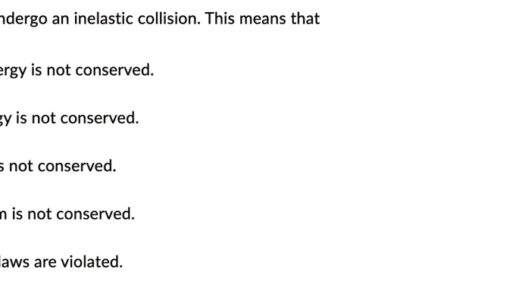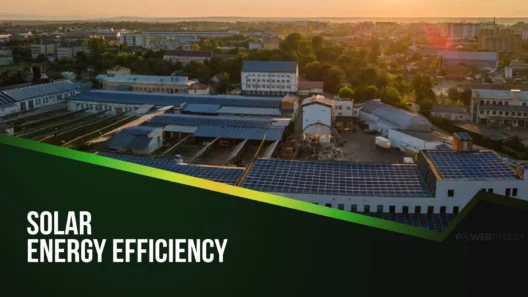Energy conservation stands as one of today’s most pressing imperatives, urging individuals, households, industries, and nations alike to reconsider their consumption patterns. While it may seem apparent that saving energy is beneficial, the complexities surrounding its importance merit deeper exploration. The consequences of energy overconsumption extend beyond mere utility bills; they reverberate throughout the fabric of our environment, economy, and society. A shift in perspective on energy utilization is paramount.
These reflections invite us to delve into the multifaceted reasons why energy conservation is not just a personal responsibility but a collective societal goal. Understanding the imperatives of saving energy allows for a more comprehensive dialogue about our role in nurturing the environment.
The Environmental Impact of Energy Consumption
One cannot discuss energy conservation without addressing its profound environmental implications. The reliance on fossil fuels—such as coal, oil, and natural gas—fuels climate change, pollutes our air and water, and devastates ecosystems. The extraction and combustion of these resources release a plethora of greenhouse gases (GHGs) into the atmosphere, which are significant contributors to global warming. Each kilowatt-hour of energy consumed from these non-renewable sources emits carbon dioxide, methane, and nitrous oxide, leading to an accelerated pace of environmental degradation.
Conserving energy effectively reduces the need for power generation, directly curtailing GHG emissions. By simply turning off lights when not in use, utilizing energy-efficient appliances, or adjusting thermoregulation strategies, consumers can diminish electricity demand, which in turn reduces the strain on power plants and their associated emissions. This seemingly small action has cascading effects throughout the ecosystem, from mitigating climate change to enhancing air quality and protecting biodiversity.
The Economic Advantage of Energy Efficiency
Beyond environmental protection, energy conservation engenders substantial economic benefits. For individuals and families, conserving energy translates into lower utility bills—an attractive prospect in an era of fluctuating energy prices. Moreover, energy-efficient practices contribute to increased property values, as prospective buyers often prioritize homes with modern, energy-conserving features.
On a macroeconomic scale, promoting energy conservation supports job creation and innovation within the renewable energy sector. The transition to energy efficiency stimulates advancements in technology and infrastructure, fostering a competitive market that thrives on sustainable practices. Governments and organizations recognizing this potential often implement incentives—such as tax breaks or grants—for adopting energy-efficient solutions, propelling a fair and green economy for all.
Strategies for Energy Conservation in Daily Life
Implementing energy-saving strategies in one’s daily life is both accessible and achievable. Recognizing the need for a proactive approach is the first step toward energizing a paradigm shift. Consumers can adopt a variety of methods tailored to their lifestyles. Here are some effective strategies:
1. **Smart Home Technologies** – Embracing Kinetic technologies such as smart meters and energy management systems can provide real-time insights into energy consumption, allowing individuals to adjust their tactics accordingly. These devices facilitate an automated response to energy demand, making conservation effortless.
2. **Adoption of Renewable Energy** – Utilizing solar panels, wind turbines, or geothermal systems can help meet personal energy needs sustainably. By investing in renewable energy sources, households contribute to a significant reduction in fossil fuel dependency.
3. **Behavioral Modifications** – Simple lifestyle alterations, such as reducing water heater temperatures, washing clothes in cold water, and limiting non-essential electric device usage, can cumulatively lead to substantial energy savings.
4. **Public Transportation and Carpooling** – Shifting from individual car journeys to public transport or carpooling not only diminishes energy consumption but also reduces road congestion and emissions. Individuals possess the ability to influence demand for cleaner transportation options.
The Social Responsibility of Energy Conservation
Energy conservation extends beyond personal and economic realms; it embodies a profound social responsibility. Our collective actions forge pathways for future generations, shaping the legacy of our environmental stewardship. The effects of climate change and resource depletion are not isolated phenomena; they impact communities around the globe, often disproportionately affecting marginalized populations.
By prioritizing energy conservation, society assumes responsibility for ensuring equitable access to resources. Energy efficiency initiatives can alleviate the energy burden on low-income households, who often spend a disproportionate share of their income on energy bills. Investing in energy conservation programs that serve these communities is vital for balancing social inequities and fostering resilience against rising energy costs.
Moreover, instilling a culture of energy conservation can catalyze communal involvement. Communities united in their efforts to conserve energy can promote collective well-being, leading to initiatives that beautify neighborhoods and engage citizens in environmental advocacy.
Embracing a Sustainable Future
In conclusion, energy conservation stands as a cornerstone for a sustainable future. The environmental, economic, and social ramifications associated with energy overconsumption compel a reevaluation of our present practices. This essential shift in perspective—viewing energy conservation as a holistic duty rather than a fragmented consideration—paves the way for a healthier planet and a more equitable society.
As we contemplate our future, let us remember that every effort, no matter how small, contributes to a more sustainable world. Whether through individual actions or communal initiatives, the call to conserve energy is clear and urgent. Embracing these practices not only safeguards our environment but also enhances our quality of life and fosters a cohesive community prepared to meet the challenges of tomorrow.






